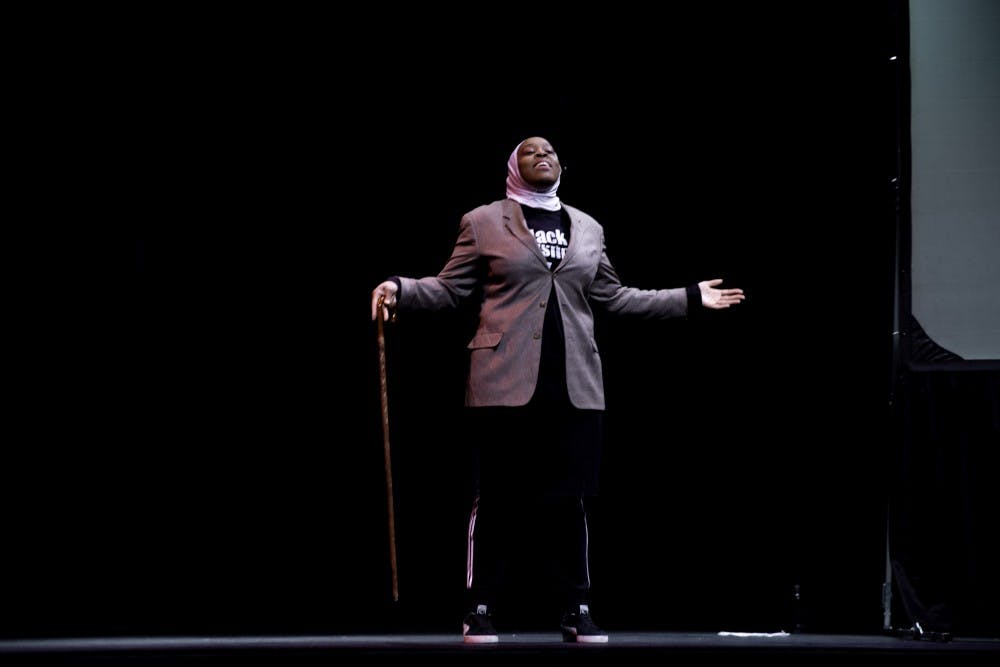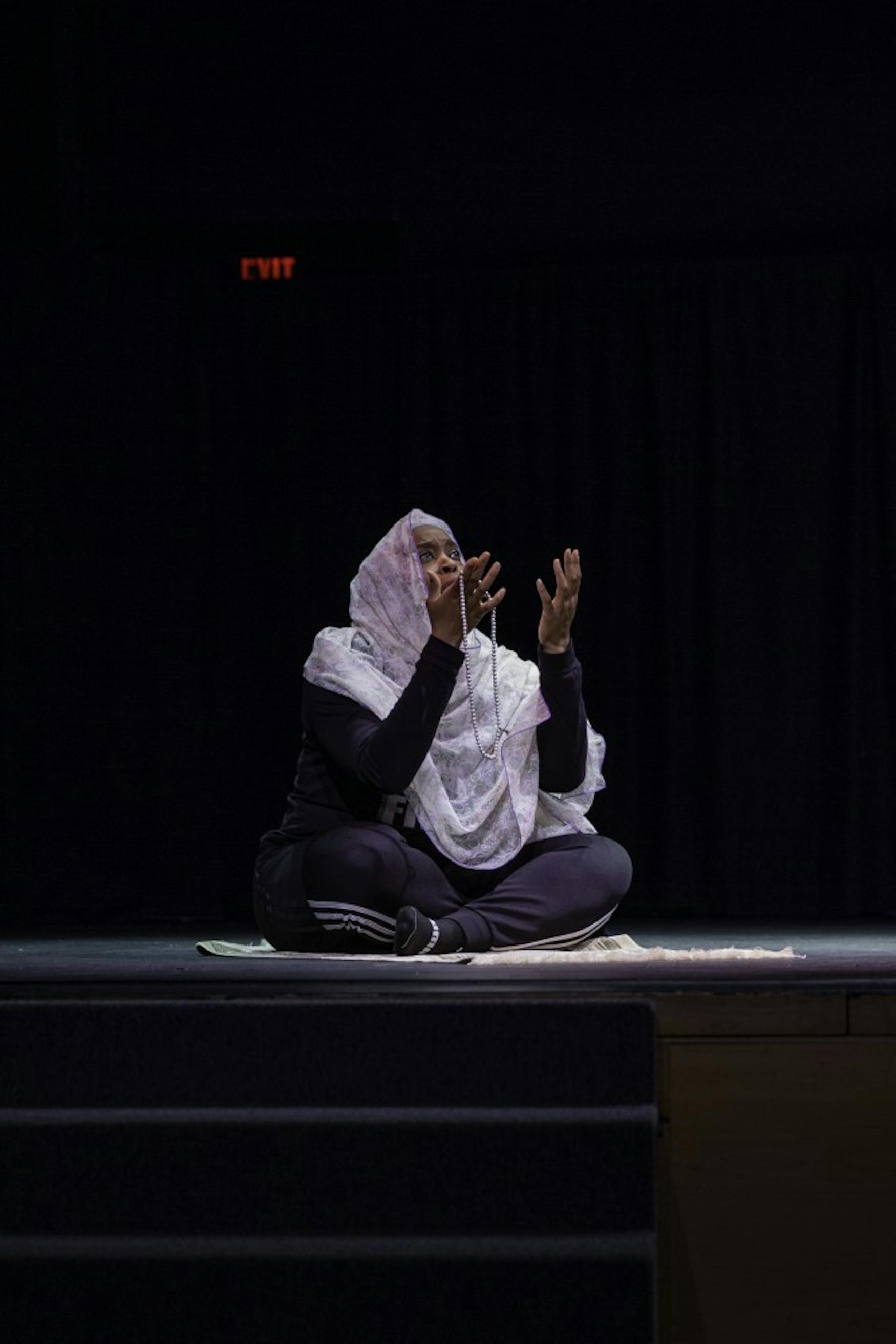‘Sampled’ explores identities with music
Sa-Roc’s “Forever” plays as the audience members look around searching for the performer, Su’ad Abdul Khabeer. She walks in from the back of the theater, wearing a backpack and large black headphones, and continues up the stairs to the stage dancing and mouthing the words to “Forever.” She begins the show.
Khabeer, an alum of Georgetown and Princeton, has been performing “Sampled: Beats of Muslim Life,” a multimedia one-woman show, for several years. She changed small parts and added some new characters as she learned more about the interactions between hip-hop and Muslim culture. Khabeer is an anthropologist and has been studying Muslim life in Chicago for seven years. With “Sampled,” her goal, as written in her performer’s statement, is to challenge the “accepted narratives on race and gender, religion, popular culture and citizenships… what we think we know about Black people, about Muslims, [and] about hip hop.”
With each contrasting character, Khabeer addressed different controversial topics. In one scene, she confronted the complicated relationship between Islamic identity and wearing a hijab. Khabeer narrated a video of a young girl deciding to what extent she wished to cover herself. The young girl chose a new “hip” style hijab because, as Khabeer explains, this is how the girl believes she will fit into the hip-hop culture of her Black Muslim community. Later, Khabeer explained that the idea behind this scene was to start a conversation addressing that a woman’s practice of Islam is not determined by what she wears, but about what she feels. There is no “right” way to be Muslim.

What makes “Sampled” so captivating is the soundtrack that plays for the entirety of the show. Every song was chosen based on what Khabeer thought each character would listen to. This is how she drew the audience in; she broke down the fourth wall with her relaxed stage presence. The performance didn’t feel rehearsed or mechanic, it instead felt like Khabeer was telling us a story.
The soundtrack created a unique dynamic between the music and dialogue. As Khabeer told her characters’ stories, she often spoke in time with the beat. Her words became lyrics, and her performance became more poetry than monologue.
I am sure that if any other person were to adopt this show, they would never have the same impact on the audience as Khabeer did. Her confidence on stage demanded the audience’s attention. Her speech was strong and truthful. It was through this strength and magnetic personality that Khabeer earned the audience’s respect and compelled them to genuinely understand her message.
After the performance, Khabeer sat down at the edge of the stage, out of costume and dressed in a tight bright purple hair wrap and large gold hoop earrings. For the next 45 minutes, she conversed with the audience, answering all of their questions. I asked her if she had any closing statement for Brandeis students. She stood there for a second, and then smiled as she said: “We have nothing to lose but our chains, we’re gonna be alright.”



Please note All comments are eligible for publication in The Justice.